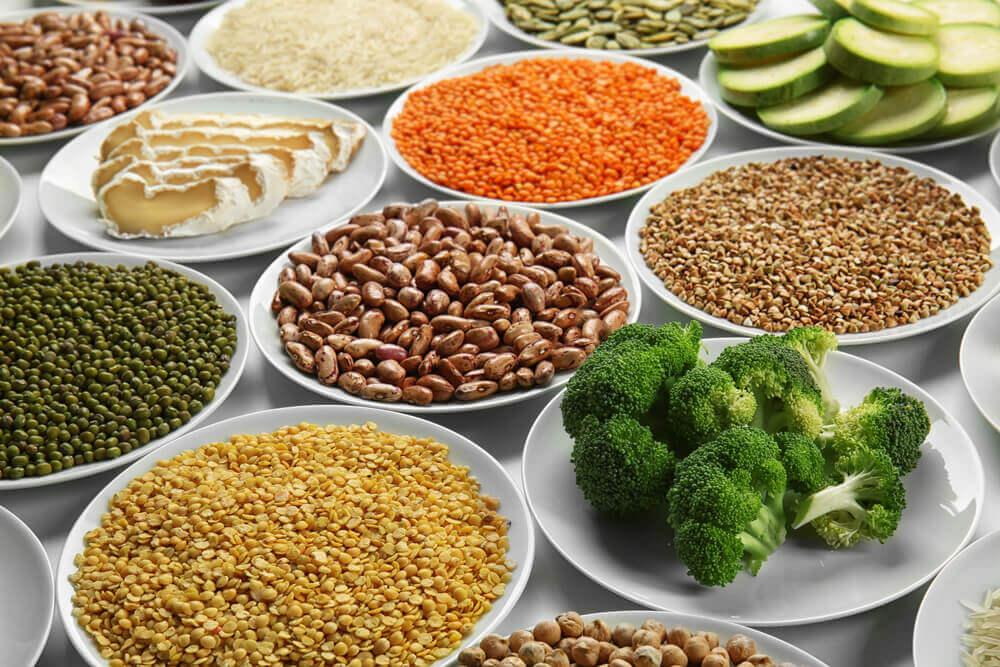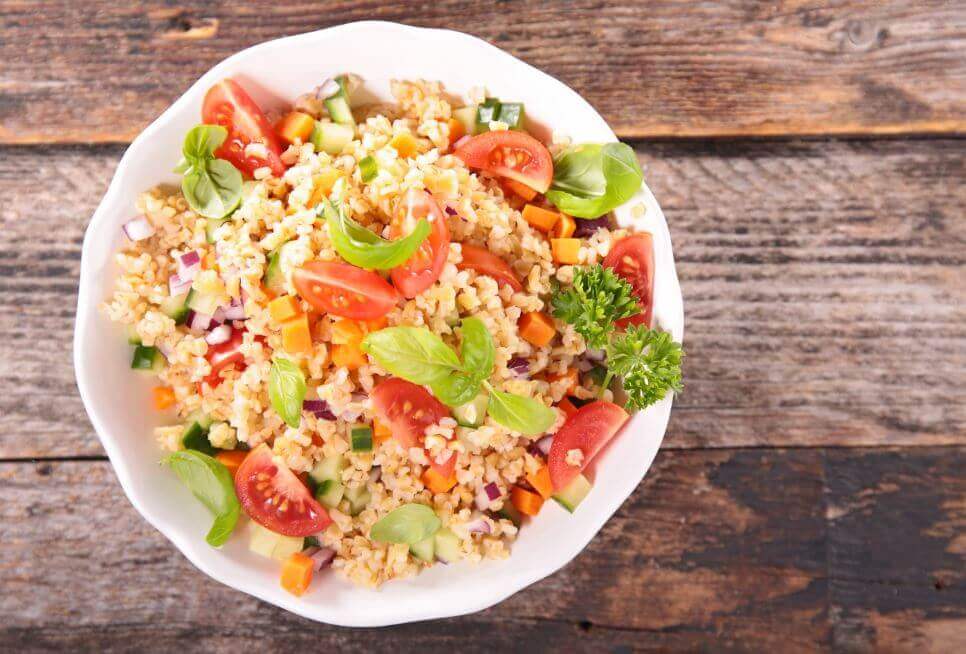Adopt a Vegetarian Diet without Reducing Nutrients

Nowadays, lots of people are deciding to follow a vegetarian diet, either for ethical reasons or personal tastes.
However, many people think that stopping eating meat can lead to health problems, so they continue eating meat from time to time. What they don’t know is that there are healthy foods that also provide you with the nutrients and minerals that meat does.
For this reason, it’s important for you to carefully plan your diet to prevent malnutrition and help you enjoy a healthy lifestyle.
On the other hand, keep in mind that adopting a vegetarian diet offers you lots of health benefits, such as:
- Lower cholesterol levels,
- Decreased blood pressure,
- Less saturated fat intake,
- Lower risk of suffering from type 2 diabetes, cardiovascular diseases and certain types of cancer,
- Reaching a healthier body weight.
In this article, we’ll take a closer look at vegetarian diets and how to adapt them healthily.
Types of Vegetarian Diets

When people think of vegetarian diets, they usually think of diets that don’t include meat or fish. However, there are lots of different types of diets that include and exclude different foods:
- Lactovegetarians exclude beef, chicken, fish, and eggs, as well as foods that contain these products. However, people who follow this type of diet can consume dairy products like milk, cheese, yogurt, and butter.
- Ovovegetarians exclude beef and chicken, seafood and dairy products, although they allow eggs.
- Lacto-ovo vegetarians don’t eat chicken, fish, and beef. However, they eat dairy products and eggs.
- Pescatarians exclude beef and chicken, dairy, and eggs, but allow fish.
- Vegans don’t eat any kind of meat or any food that comes from an animal, including milk and eggs.
Some people choose to follow a semi-vegetarian diet (also known as a flexitarian diet) that is mainly vegetable-based. However, it also includes meat, dairy, eggs, chicken and fish occasionally or in small quantities.
Nutrients to Think About when Adopting a Vegetarian Diet
People who want to adopt a vegetarian diet should make sure that they get enough of the following nutrients:
Iron

This is a mineral that is abundant in red meat. In fact, it plays a fundamental role in the production of red blood cells, which are cells that help carry oxygen throughout the body.
Some good options to get iron in a vegetarian diet are legumes, broccoli, raisins, wheat, and tofu.
Grains fortified with iron are also great. However, iron that doesn’t come from an animal source is more difficult to digest. To fix this problem, it’s important to get enough vitamin C to help absorb and digest iron.
Also check out: 7 Ways to Combat Iron-Deficiency Anemia Without Taking Iron
Protein
Proteins are nutrients formed by basic units called amino acids. 20 different amino acids combine to form different proteins. In fact, this nutrient is essential to keep your skin, muscles and organs in good condition.
A complete protein is one that contains in its structure all of the amino acids that your body needs. Meat has all of these proteins.
However, there are also options for people who want to adopt a vegetarian. For example, you can combine foods to get complete proteins, like rice and beans or corn and legumes.

Other foods to include in a vegetarian diet that provide proteins (although not complete ones) are:
- Eggs
- Quinoa
- Walnuts
- Seeds
- Grains
- Tofu
- Soy milk
You might also be interested in: What is Lean Protein and How can it Help Your Diet?
On the other hand, you might feel hungrier when starting a vegetarian diet because animal proteins make you feel full. However, you don’t need to overdo it by eating too much just to feel full. You can eat more vegetables on your plate without adding extra calories.
Some of them, like asparagus, peas or broccoli help you feel full and have lots of protein.
In Short, to Adopt a Vegetarian Diet…
If you want to adopt a vegetarian diet, remember that you’ll be able to find foods with the essential nutrients that you need. As you can see, the plant world offers foods that you can mix to get all the nutrients you need.
However, don’t forget to plan your meals well. That way, you won’t have too much or too little of certain nutrients.
All cited sources were thoroughly reviewed by our team to ensure their quality, reliability, currency, and validity. The bibliography of this article was considered reliable and of academic or scientific accuracy.
- Lourdes López Portillo, L., Margarita García Campos, L., Ericka Montijo Barrios, L., Cervantes Bustamante, R., Mata Rivera, N., & Ramírez Mayans, J. (2006). La dieta vegetariana en los niños. Ventajas, desventajas y recomendaciones dietéticas. Acta Pediatr Mex.
- Saz-Peiró, P., Morán, M., & Saz-Tejero, S. (2013). Dieta vegetariana y su aplicación terapeutica. Universidad de Zaragoza.
- Saz-Peiro, P., & Saz-Tejero, S. (2015). La dieta vegetariana en la prevención y el tratamiento del cáncer. Medicina Naturista.
This text is provided for informational purposes only and does not replace consultation with a professional. If in doubt, consult your specialist.








